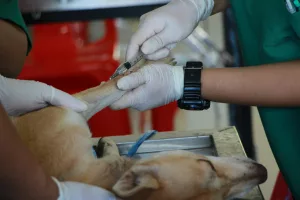Yawning is a common behavior seen in birds, just like in humans and other animals. However, when your bird yawns repeatedly, it may indicate various underlying reasons that need attention and understanding. While a single yawn might be perfectly normal, frequent yawning can be a sign that something more is going on. Let’s dive deeper into the possible causes and what you can do to help your feathered friend.
Stress and Anxiety
One of the primary reasons for a bird to yawn repeatedly is stress or anxiety. Birds, especially in captivity, can experience stress due to various factors such as loud noises, changes in their environment, lack of mental stimulation, or even feeling threatened. Yawning may be a sign of their body’s attempt to cope with these stressors.
Identifying Stress in Birds
- Behavioral Changes: Look for signs such as feather plucking, excessive vocalization, or changes in eating and drinking habits. For instance, a parrot that used to be vocal may become unusually quiet, which can be a sign of stress.
- Physical Indicators: Stress bars on feathers, a decrease in grooming, or weight loss can be indications of anxiety. Stress bars appear as horizontal lines across the feathers and can indicate periods of stress during feather development.
- Environmental Stressors: Sudden changes in their surroundings, like new furniture or even a new pet, can be unsettling for birds. It’s important to introduce changes gradually, allowing your bird time to adjust.
Reducing Stress
- Routine: Birds thrive on routine. Try to keep feeding times and interactions consistent to give your bird a sense of security.
- Safe Space: Ensure your bird has a quiet, safe space where it can retreat when it feels overwhelmed. A corner of the room with a cover over the cage can provide a sense of security.
- Enrichment Activities: Introduce toys and activities that stimulate your bird mentally and physically. Puzzle toys or foraging games can be great options. Rotate toys regularly to maintain interest.
Respiratory Issues
Another possible cause for repeated yawning in birds could be related to respiratory problems. Birds have a complex respiratory system, and issues such as infections, allergies, or respiratory irritants can lead to increased yawning as a way to improve airflow and oxygenation.
Common Respiratory Problems
- Infections: Bacterial, viral, or fungal infections can affect a bird’s respiratory system. Symptoms may include sneezing, coughing, or nasal discharge. For example, Aspergillosis is a fungal infection affecting the respiratory system, common in birds with weakened immune systems.
- Allergies: Just like humans, birds can develop allergies to certain foods, dust, or pollutants. Cockatiels, for example, are prone to respiratory issues due to dust from their feathers.
- Air Quality: Poor air quality, from smoking or cooking fumes, can irritate a bird’s respiratory tract. It’s crucial to maintain good ventilation and avoid using aerosols or strong cleaning agents near your bird.
Improving Respiratory Health
- Air Purifiers: Use an air purifier to reduce allergens and irritants in the home. Choose ones with HEPA filters, as these are effective in trapping bird dander and dust.
- Regular Cleaning: Keep your bird’s cage clean and change the bedding frequently to minimize dust. A clean environment helps prevent infections.
- Veterinary Check-ups: Regular visits to an avian vet can help catch respiratory issues early. Discuss any concerns about your bird’s breathing with your vet to ensure proper care.
Lack of Sleep or Fatigue
Yawning can also be a signal of fatigue or sleep deprivation in birds. Just like humans, birds need adequate rest to maintain their physical and mental health. If your bird is not getting enough sleep or is overexerted, it may yawn more frequently as a response to tiredness.
Ensuring Adequate Rest
- Sleep Environment: Provide a dark, quiet place for your bird to sleep uninterrupted. Consider using a cage cover to create a cozy, dark sleeping area.
- Routine: Birds benefit from a consistent sleep schedule. Aim for 10-12 hours of darkness each night to mimic their natural environment.
- Activity Levels: Ensure your bird gets enough exercise during the day to promote restful sleep at night. Activities like flight time or games can help expend energy.
Physical Health Concerns
Underlying physical health issues, such as respiratory infections, oral discomfort, or even neurological problems, can manifest in repeated yawning behavior. It is essential to monitor your bird’s overall health and consult a veterinarian if you notice persistent yawning along with other concerning symptoms.
Signs of Physical Health Issues
- Appetite Changes: A loss of appetite or changes in eating habits can be a sign of illness. Monitor your bird’s food intake and note any sudden changes.
- Droppings: Changes in the frequency or appearance of droppings can indicate health problems. Healthy droppings should be well-formed with a clear white urate cap.
- Activity Levels: A decrease in activity or enthusiasm could signal underlying health issues. If your usually active bird seems lethargic, it’s time for a vet visit.
Consulting a Veterinarian
- Regular Check-ups: Schedule regular appointments with an avian vet to ensure your bird’s health. A vet can provide tailored advice based on your bird’s species and lifestyle.
- Emergency Symptoms: If your bird exhibits labored breathing, lethargy, or significant changes in behavior, seek veterinary care immediately. These can be signs of serious health issues that require prompt attention.
Behavioral Patterns
Sometimes, repeated yawning in birds can be a learned behavior or a form of communication. Observing your bird’s context and surroundings when they yawn can offer insights into whether it is a response to specific triggers, interactions, or simply habitual behavior.
Understanding Bird Communication
- Observational Learning: Birds are intelligent creatures that can mimic behaviors they observe in others, including yawning. If you yawn around your bird, they might mimic this action.
- Social Interactions: Some birds yawn as a way to bond with their human or avian companions. It’s a simple indication of comfort and ease.
- Attention-seeking: In some cases, yawning might be a way to capture your attention if it’s followed by other interactive behaviors. If your bird yawns and then engages in playful behavior, it’s likely seeking your interaction.
Environmental Factors
The bird’s immediate environment plays a crucial role in their well-being and behaviors. Factors such as temperature fluctuations, inadequate ventilation, exposure to toxins or pollutants, or even poor lighting can contribute to stress and yawning episodes.
Optimizing the Environment
- Temperature Control: Ensure the room temperature is comfortable and stable, avoiding drafts or extreme heat. Birds are sensitive to temperature changes, so maintaining a consistent climate is key.
- Ventilation: Good airflow is essential. Ensure the room is well-ventilated but free from harmful fumes or smoke. Avoid placing the cage in kitchen areas where fumes are common.
- Lighting: Provide a natural day-night cycle with appropriate lighting. Consider using a UV light to simulate natural sunlight, as it is beneficial for your bird’s health and mood.
Nutrition and Diet
While yawning is not directly linked to diet, nutrition plays a fundamental role in a bird’s overall health and behavior. A balanced diet can prevent many issues that might lead to increased yawning.
Essential Nutrients
- Variety: Offer a mix of seeds, pellets, fruits, and vegetables to ensure a well-rounded diet. Foods like leafy greens, carrots, and apples can provide essential vitamins and minerals.
- Calcium and Vitamins: Ensure adequate calcium intake, especially for egg-laying birds, and provide vitamin supplements if needed. Cuttlebone or mineral blocks are great calcium sources.
- Hydration: Fresh, clean water should always be available to prevent dehydration and associated symptoms. Clean the water dish daily to ensure cleanliness.
Socialization and Interaction
Birds are highly social creatures, and lack of interaction can lead to boredom and stress, which might manifest as yawning.
Encouraging Socialization
- Daily Interaction: Spend time talking, playing, and interacting with your bird every day. Simple activities like gentle petting or teaching new words can be enriching.
- Socialization with Other Birds: If possible, allow your bird to interact with other birds to fulfill their social needs. If you have multiple birds, supervised playtime can be beneficial.
- Training and Tricks: Engage your bird with training sessions that stimulate their mind and provide bonding opportunities. Teaching tricks like “step up” or “wave” can be fun and rewarding.
Common Mistakes and How to Avoid Them
- Ignoring Subtle Signs: Overlooking minor changes in behavior or appearance can lead to serious health issues. Always be observant and proactive in addressing concerns.
- Inconsistent Care: Birds need consistent care and attention. Ensure regular feeding, cleaning, and interaction to maintain their well-being.
- Lack of Professional Guidance: Don’t hesitate to seek help from a veterinarian or avian specialist if you’re unsure about your bird’s health. Professional advice can prevent minor issues from escalating.
Understanding why your bird yawns repeatedly requires careful observation, consideration of various factors, and professional guidance when necessary. By addressing the potential root causes behind this behavior, you can ensure the overall health and happiness of your feathered companion. Remember, being attentive to your bird’s needs and maintaining a nurturing environment goes a long way in promoting their well-being.
Additional Tips for Bird Owners
- Observation Skills: Take time to observe your bird’s daily routine and note any changes. This can be done during feeding times, play sessions, or while cleaning their cage.
- Documentation: Keep a log of your bird’s behavior, diet, and health changes. This can be useful when consulting with a vet or when assessing the effectiveness of any changes you implement.
- Community Support: Join bird owner communities online or locally. These groups can be a valuable resource for sharing tips, experiences, and getting advice from fellow bird enthusiasts.
By expanding your understanding and implementing these strategies, you can address your bird’s yawning behavior effectively, ensuring a happy and healthy life for your avian friend.



